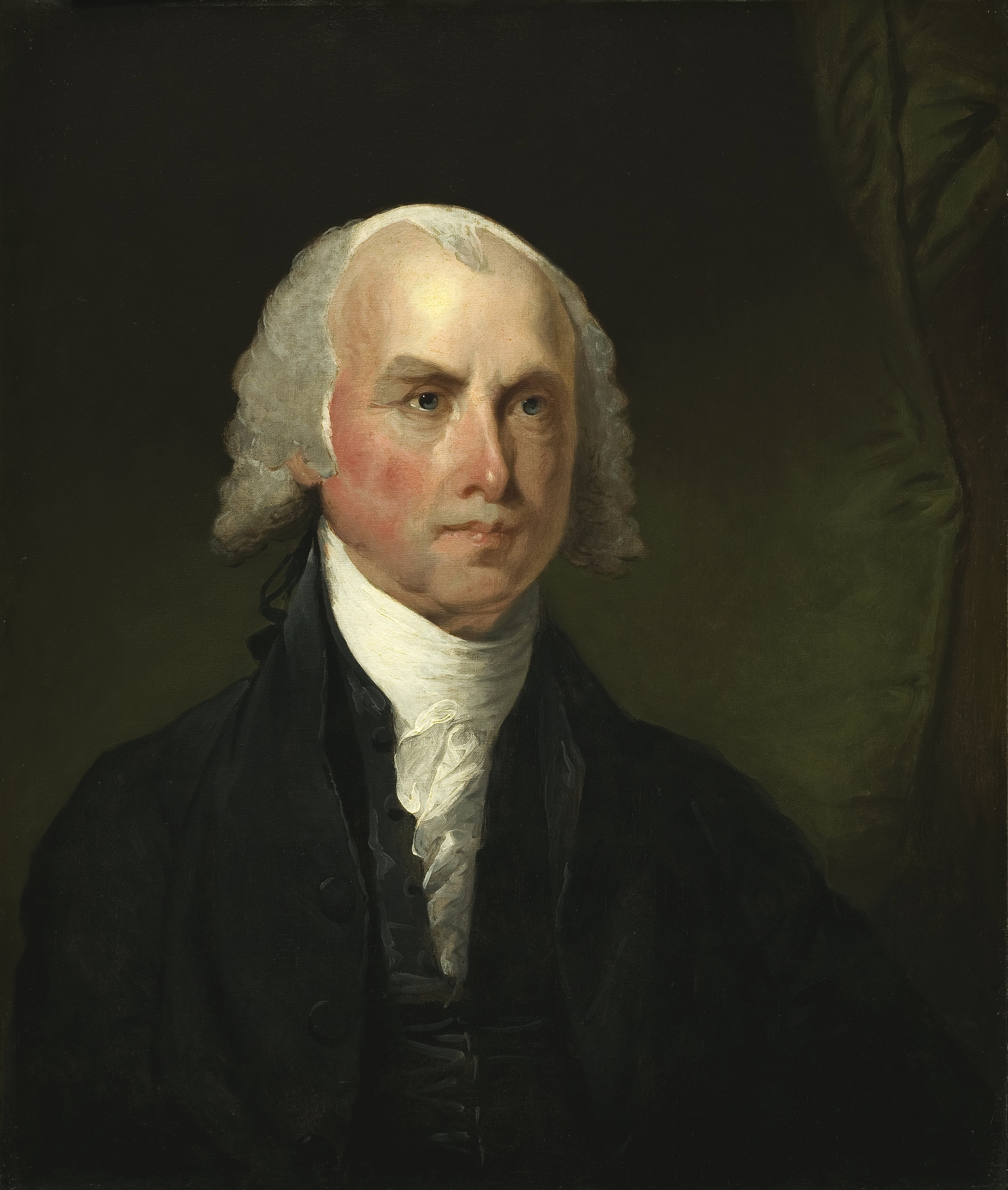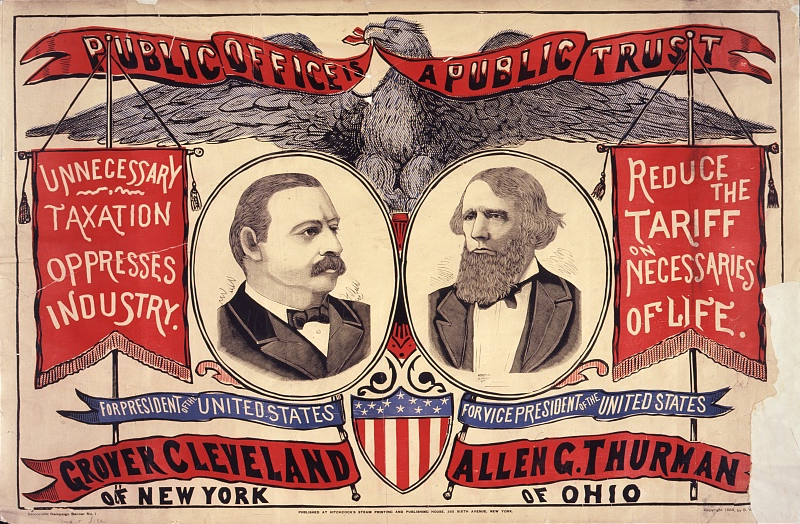|
Federalist No. 57
Federalist No. 57 is an essay by James Madison, the fifty-seventh of ''The Federalist Papers''. It was published on February 19, 1788, under the pseudonym Publius, the name under which all ''The Federalist'' papers were published. It is titled "The Alleged Tendency of the New Plan to Elevate the Few at the Expense of the Many". The central criticism Madison refutes in the essay is that the House of Representatives will comprise legislators having the "least sympathy with the mass of the people," and that they will be likely to coalesce in the "ambitious sacrifice of the many to the aggrandizement of the few." Reassuring the reader first of the general properties of republics which prevent tyranny, namely elections and term limits for people in a public trust, he moves more specifically to the safeguards present in the United States Constitution for that purpose. Drawing on the meritocratic benefits of the popular mode of election for representatives in the House, Madison guaran ... [...More Info...] [...Related Items...] OR: [Wikipedia] [Google] [Baidu] |
James Madison
James Madison Jr. (March 16, 1751June 28, 1836) was an American statesman, diplomat, and Founding Father. He served as the fourth president of the United States from 1809 to 1817. Madison is hailed as the "Father of the Constitution" for his pivotal role in drafting and promoting the Constitution of the United States and the Bill of Rights. Madison was born into a prominent slave-owning planter family in Virginia. He served as a member of the Virginia House of Delegates and the Continental Congress during and after the American Revolutionary War. Unsatisfied with the weak national government established by the Articles of Confederation, he helped organize the Constitutional Convention, which produced a new constitution. Madison's Virginia Plan was the basis for the Convention's deliberations, and he was an influential voice at the convention. He became one of the leaders in the movement to ratify the Constitution, and joined Alexander Hamilton and John Jay in writing '' ... [...More Info...] [...Related Items...] OR: [Wikipedia] [Google] [Baidu] |
The Federalist Papers
''The Federalist Papers'' is a collection of 85 articles and essays written by Alexander Hamilton, James Madison, and John Jay under the collective pseudonym "Publius" to promote the ratification of the Constitution of the United States. The collection was commonly known as ''The Federalist'' until the name ''The Federalist Papers'' emerged in the 20th century. The first 77 of these essays were published serially in the '' Independent Journal'', the ''New York Packet'', and ''The Daily Advertiser'' between October 1787 and April 1788. A compilation of these 77 essays and eight others were published in two volumes as ''The Federalist: A Collection of Essays, Written in Favour of the New Constitution, as Agreed upon by the Federal Convention, September 17, 1787'', by publishing firm J. & A. McLean in March and May 1788. The last eight papers (Nos. 78–85) were republished in the New York newspapers between June 14 and August 16, 1788. The authors of ''The Federalist'' intended t ... [...More Info...] [...Related Items...] OR: [Wikipedia] [Google] [Baidu] |
Pseudonym
A pseudonym (; ) or alias () is a fictitious name that a person or group assumes for a particular purpose, which differs from their original or true name (orthonym). This also differs from a new name that entirely or legally replaces an individual's own. Many pseudonym holders use pseudonyms because they wish to remain anonymous, but anonymity is difficult to achieve and often fraught with legal issues. Scope Pseudonyms include stage names, user names, ring names, pen names, aliases, superhero or villain identities and code names, gamer identifications, and regnal names of emperors, popes, and other monarchs. In some cases, it may also include nicknames. Historically, they have sometimes taken the form of anagrams, Graecisms, and Latinisations. Pseudonyms should not be confused with new names that replace old ones and become the individual's full-time name. Pseudonyms are "part-time" names, used only in certain contexts – to provide a more clear-cut separation between o ... [...More Info...] [...Related Items...] OR: [Wikipedia] [Google] [Baidu] |
Federalist Papers
''The Federalist Papers'' is a collection of 85 articles and essays written by Alexander Hamilton, James Madison, and John Jay under the collective pseudonym "Publius" to promote the ratification of the Constitution of the United States. The collection was commonly known as ''The Federalist'' until the name ''The Federalist Papers'' emerged in the 20th century. The first 77 of these essays were published serially in the '' Independent Journal'', the ''New York Packet'', and ''The Daily Advertiser'' between October 1787 and April 1788. A compilation of these 77 essays and eight others were published in two volumes as ''The Federalist: A Collection of Essays, Written in Favour of the New Constitution, as Agreed upon by the Federal Convention, September 17, 1787'', by publishing firm J. & A. McLean in March and May 1788. The last eight papers (Nos. 78–85) were republished in the New York newspapers between June 14 and August 16, 1788. The authors of ''The Federalist'' intended t ... [...More Info...] [...Related Items...] OR: [Wikipedia] [Google] [Baidu] |
Public Trust
The concept of public trust relates back to the origins of democratic government and its seminal idea that within the public lies the true power and future of a society; therefore, whatever ''trust'' citizens place in its officials must be respected. One of the reasons that bribery is regarded as a notorious evil is that it contributes to a culture of political corruption in which public trust is eroded. Other issues related to political corruption or betrayal of public trust are lobbying, special interest groups and the public cartel. United States In the United States "Public Trust" is a term of art referring to any public property which belongs to the whole of the people. Initially it was used within the formation of the government to refer to politicians who achieve power by election. In the United States Constitution, all members of Congress as well as the President, and Vice President are elected seats therein. The first state constitution drafted in the United States was ... [...More Info...] [...Related Items...] OR: [Wikipedia] [Google] [Baidu] |
Federalist No
The term ''federalist'' describes several political beliefs around the world. It may also refer to the concept of parties, whose members or supporters called themselves ''Federalists''. History Europe federation In Europe, proponents of deeper European integration are sometimes called Federalists. A major European NGO and advocacy group campaigning for such a political union is the Union of European Federalists. Movements towards a peacefully unified European state have existed since the 1920s, notably the Paneuropean Union. A pan-European party with representation in the European Parliament fighting for the same cause is Volt Europa. In the European Parliament the Spinelli Group brings together MEPs from different political groups to work together of ideas and projects of European federalism; taking their name from Italian politician and MEP Altiero Spinelli, who himself was a major proponent of European federalism, also meeting with fellow deputies in the Crocodile Club. ... [...More Info...] [...Related Items...] OR: [Wikipedia] [Google] [Baidu] |
Congress
A congress is a formal meeting of the representatives of different countries, constituent states, organizations, trade unions, political parties, or other groups. The term originated in Late Middle English to denote an encounter (meeting of adversaries) during battle, from the Latin '' congressus''. Political congresses International relations The following congresses were formal meetings of representatives of different nations: *The Congress of Aix-la-Chapelle (1668), which ended the War of Devolution *The Congress of Aix-la-Chapelle (1748), which ended the War of the Austrian Succession *The Congress of Aix-la-Chapelle (1818) *The Congress of Berlin (1878), which settled the Eastern Question after the Russo-Turkish War (1877–1878) *The Congress of Gniezno (1000) *The Congress of Laibach (1821) *The Congress of Panama, an 1826 meeting organized by Simón Bolívar *The Congress of Paris (1856), which ended the Crimean War *The Congress of Troppau (1820) *The Congress of Tu ... [...More Info...] [...Related Items...] OR: [Wikipedia] [Google] [Baidu] |
1788 In Law
Events January–March * January 1 – The first edition of ''The Times'', previously ''The Daily Universal Register'', is published in London. * January 2 – Georgia (U.S. state), Georgia ratifies the United States Constitution, and becomes the fourth U.S. state under the new government. * January 9 – Connecticut ratifies the United States Constitution, and becomes the fifth U.S. state. * January 18 – The leading ship (armed tender HMS Supply (1759), HMS ''Supply'') in Captain Arthur Phillip's First Fleet arrives at Botany Bay, to colonise Australia. * January 22 – the Continental Congress, Congress of the Confederation, effectively a caretaker government until the United States Constitution can be ratified by at least nine of the 13 states, elects Cyrus Griffin as its last President of the Continental Congress, president.''Harper's Encyclopaedia of United States History from 458 A. D. to 1909'', ed. by Benson John Lossing and, Woodrow Wilson (Harper & Brothers, ... [...More Info...] [...Related Items...] OR: [Wikipedia] [Google] [Baidu] |
Federalist Papers By James Madison
The term ''federalist'' describes several political beliefs around the world. It may also refer to the concept of parties, whose members or supporters called themselves ''Federalists''. History Europe federation In Europe, proponents of deeper European integration are sometimes called Federalists. A major European NGO and advocacy group campaigning for such a political union is the Union of European Federalists. Movements towards a peacefully unified European state have existed since the 1920s, notably the Paneuropean Union. A pan-European party with representation in the European Parliament fighting for the same cause is Volt Europa. In the European Parliament the Spinelli Group brings together MEPs from different political groups to work together of ideas and projects of European federalism; taking their name from Italian politician and MEP Altiero Spinelli, who himself was a major proponent of European federalism, also meeting with fellow deputies in the Crocodile Club. ... [...More Info...] [...Related Items...] OR: [Wikipedia] [Google] [Baidu] |
1788 In The United States
Events from the year 1788 in the United States. Time passed. Incumbents Federal Government *President: Cyrus Griffin (starting January 29) *Congress of the Confederation Events * January 2 – Georgia ratifies the United States Constitution and becomes the 4th U.S. state under the new government (''see'' History of Georgia). * January 9 – Connecticut ratifies the United States Constitution and becomes the 5th U.S. state (''see'' History of Connecticut). * January 22 – the Continental Congress, effectively a caretaker government, elects Cyrus Griffin as its last president. * February 1 – Isaac Briggs and William Longstreet patent the steamboat in Georgia. * February 6 – Massachusetts ratifies the United States Constitution and becomes the 6th U.S. state (''see'' History of Massachusetts). * March 21 – Great New Orleans Fire (1788) kills 25% of the population and destroys 856 buildings, including St. Louis Cathedral and the Cabildo, leav ... [...More Info...] [...Related Items...] OR: [Wikipedia] [Google] [Baidu] |






